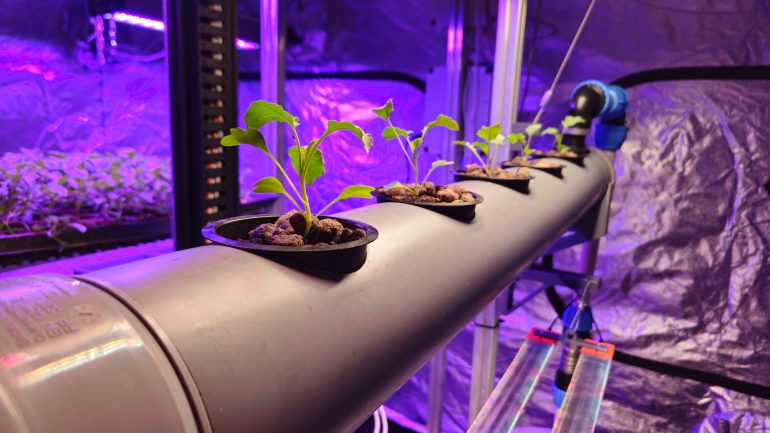Experts at the Institute of Agricultural, Food and Environmental Technology at Mendel University have created a unique cultivation system in which they expose plants to abiotic stress. Using different types of cameras and selected sensors, they are recording the plants’ responses to stress conditions. The data obtained will be used to train advanced artificial neural networks.
Scientists from the Faculty of Agronomy are also collaborating with Radek Martinek’s team from the Faculty of Electrical Engineering and Computer Science at the Technical University of Ostrava (VŠB-TUO).
The system can adjust temperature, humidity and light intensity, but also increase the saturation of the atmosphere with carbon dioxide. The growth tent in the Faculty of Agriculture’s laboratory simulates conditions that cause abiotic stress to plants – stress that is not directly caused by living organisms, such as pests.
“In the growth tent, we can measure and regulate environmental conditions. We can, for example, raise the temperature to 30°C for a short time to stress the plant. Hydroponics mixes the nutrient solution as needed, allowing us to create stress situations, e.g. a lack of calcium, phosphorus or nitrogen”, said Vlastimil Slaný, head of the research project. The scientific team is particularly interested in the lack of certain nutrients in extreme temperatures.
The grow tent contains an RGB or hyperspectral camera, which reliably records plant changes in response to stress. “The camera captures a time series of changes in the plant. The image data is then used to train advanced neural networks, for example to recognise that the plant is not doing well and what is causing it,” said Slaný.
Scientists from Mendel University and VŠB-TUO designed the growing system themselves, in response to the boom in the use of artificial intelligence in agriculture.
“We have focused on vegetables – such as lettuce, radish or carrots. Now the plan is to include tomatoes and later cabbage,” Slaný explained. “All this helps us to generate image data, which we then pass on to a follow-up group in Ostrava. Based on the data, they will develop an artificial intelligence system that can be used to scan plants in practice, for example in a vineyard, greenhouse or field.”
AI can identify the cause of abiotic stress by comparing photos of a real plant with a large amount of acquired image data. Such a system has the potential for use worldwide. In the future, the research team will also focus on similar data collection for plants attacked by pests and on developing a multi-sensory system to collect more than just image data.








